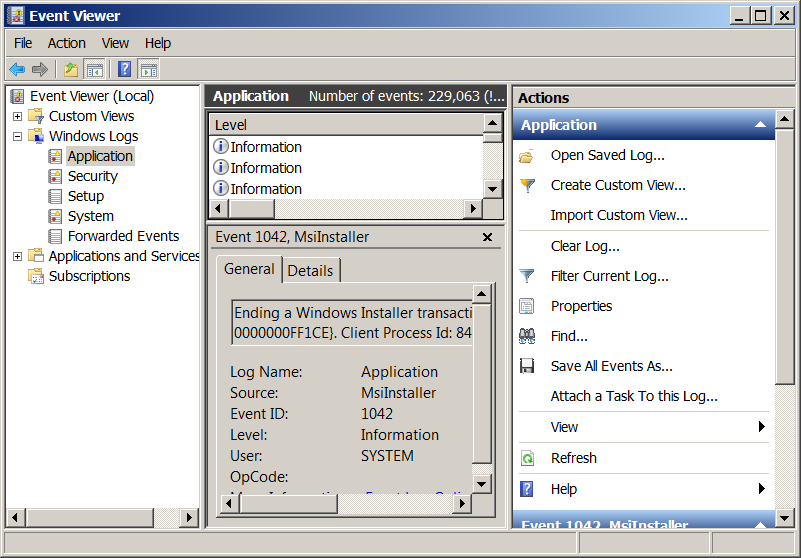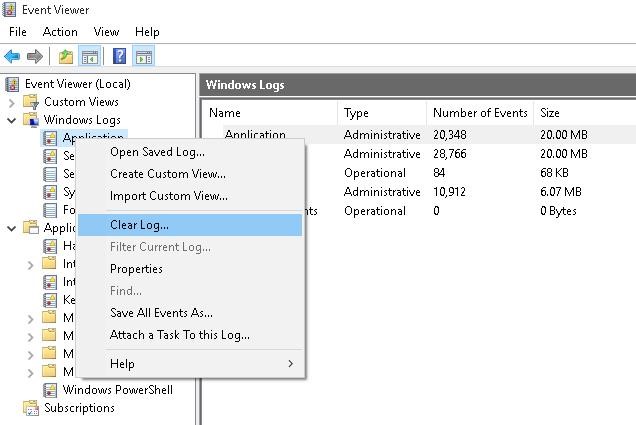

Windows categorizes every event with a severity level. The Event Viewer application in the Windows operating system Users can then select and inspect the desired log. Users access the Event Viewer by clicking the Start button and entering Event Viewer into the search field. Microsoft includes the Event Viewer in its Windows Server and client operating system to view Windows event logs. System events relate to incidents on Windows-specific systems, such as the status of device drivers.įorwarded events arrive from other machines on the same network when an administrator wants to use a computer that gathers multiple logs.

Setup events include enterprise-focused events relating to the control of domains, such as the location of logs after a disk configuration. For example, the security log stores a record when the computer attempts to verify account credentials when a user tries to log on to a machine. Security events store information based on the Windows system's audit policies, and the typical events stored include login attempts and resource access. If an application such as Microsoft Word crashes, then the Windows event log will create a log entry about the issue, the application name and why it crashed.

Windows stores event logs in the C:\WINDOWS\system32\config\ folder.Īpplication events relate to incidents with the software installed on the local computer. The Windows operating system records events in five areas: application, security, setup, system and forwarded events. Warning 10:29:47 AM Kernel-Event Tracing 1 Loggingīy comparison, an error event might appear as:Įrror 8:41:15 AM Service Control Manager 7001 NoneĬritical 8:55:02 AM Kernel-Power 41 (63) The type of information stored in Windows event logs Information 8:41:15 AM Service Control Manager 7036 None Type: The type of event, including information, warning, error, security success audit or security failure audit.įor example, an information event might appear as: Source: The program or component that caused the event. User: The username of the user logged onto the machine when the event occurred.Įvent ID: A Windows identification number that specifies the event type. The elements of a Windows event logĮach event in a log entry contains the following information: The Windows operating system tracks specific events in its log files, such as application installations, security management, system setup operations on initial startup, and problems or errors. The Windows event log is a detailed record of system, security and application notifications stored by the Windows operating system that is used by administrators to diagnose system problems and predict future issues.Īpplications and the operating system (OS) use these event logs to record important hardware and software actions that the administrator can use to troubleshoot issues with the operating system.


 0 kommentar(er)
0 kommentar(er)
